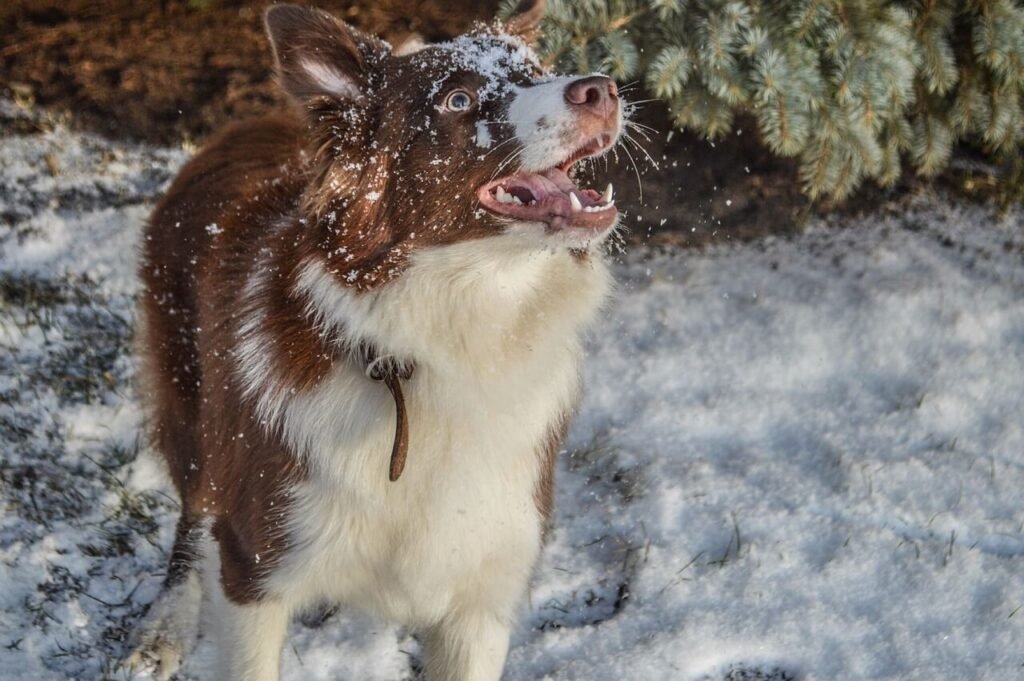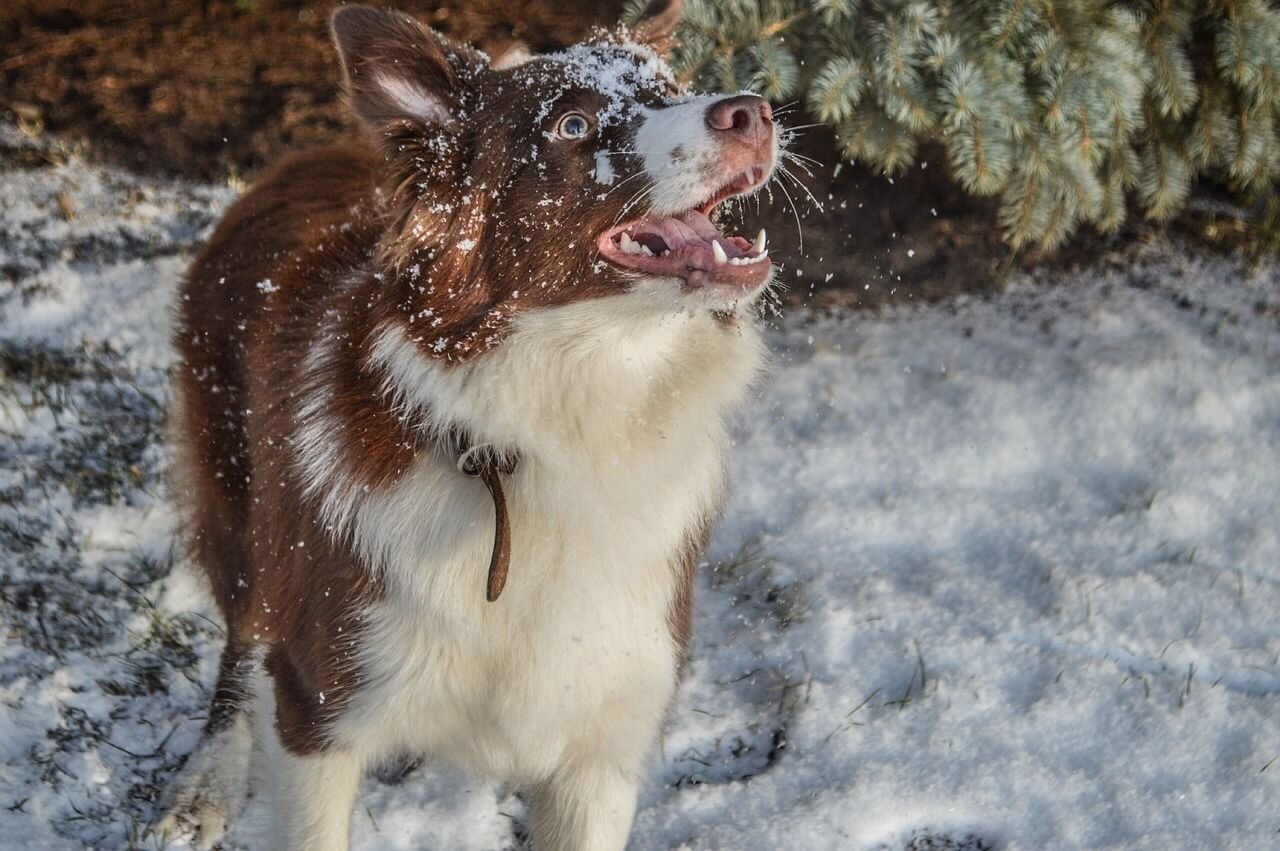My Dog Ate a Raw Sweet Potato: What Should I Do?
Dogs are notorious for their curious and sometimes mischievous eating habits. Whether it’s sneaking food off the counter or munching on something they shouldn’t, our furry friends can leave us scrambling for answers. One common scenario that might have you panicking is discovering that your dog has eaten a raw sweet potato. While sweet potatoes are generally safe for dogs when cooked and prepared properly, raw sweet potatoes pose potential risks due to their tough texture and digestive challenges. In this guide, we’ll explore what to do if your dog ate a raw sweet potato, signs to watch for, and how to prevent future incidents. With the right knowledge, you can ensure your pup stays healthy and happy.
Potential Risks of Eating a Raw Sweet Potato
While sweet potatoes are a nutritious treat for dogs when cooked, raw sweet potatoes come with certain risks. Understanding these dangers can help you assess the situation and take appropriate action.
Choking Hazard : Raw sweet potatoes are hard and dense, which can pose a choking risk, especially for smaller dogs or aggressive chewers.
Digestive Blockage : Large chunks of raw sweet potato may not break down easily in your dog’s stomach, potentially causing an intestinal blockage.
Stomach Upset : The fibrous nature of raw sweet potatoes can lead to vomiting, diarrhea, or general gastrointestinal discomfort.
Toxicity Concerns : While sweet potatoes themselves are not toxic, any pesticides or contaminants on the skin could harm your dog.
Difficulty Digesting Starches : Raw sweet potatoes contain resistant starches that are harder for dogs to digest compared to cooked versions.
If your dog has eaten a raw sweet potato, it’s important to monitor them closely for any signs of distress or unusual behavior.
Signs Your Dog May Be Experiencing Issues
After your dog eats a raw sweet potato, keep an eye out for symptoms that indicate they’re having trouble. Early detection can make a significant difference in addressing potential problems.
Vomiting or Diarrhea : These are common reactions to indigestible foods and may signal irritation in the digestive tract.
Lethargy or Weakness : If your dog seems unusually tired or uninterested in activities, it could indicate internal discomfort.
Loss of Appetite : Refusal to eat or drink may suggest nausea or pain caused by the raw sweet potato.
Excessive Drooling : This could be a sign of nausea or difficulty swallowing due to a potential blockage.
Whining or Restlessness : Vocalizations and pacing may indicate abdominal pain or discomfort.
If you notice any of these symptoms, consult your veterinarian promptly to rule out serious complications.
Check this guide 👉Can Dogs Eat Potatoes? Best 7 Expert Tips!
Check this guide 👉Sweet Potato Dog Treats: Best 7 Health Tips!

Safe Foods for Dogs | Foods to Avoid Giving Dogs |
|---|---|
Cooked sweet potatoes (plain) | Raw sweet potatoes |
Carrots (plain and cooked) | Grapes and raisins |
Plain boiled chicken | Chocolate |
Pumpkin (plain and cooked) | Onions and garlic |
Blueberries | Alcohol |
Steps to Take If Your Dog Eats a Raw Sweet Potato
If you discover that your dog has eaten a raw sweet potato, staying calm and taking immediate action is crucial. Here’s what you should do:
Assess the Situation : Determine how much of the sweet potato was consumed and whether it was cooked or raw.
Check for Choking : Look for signs of choking, such as coughing, gagging, or difficulty breathing.
Monitor Behavior : Observe your dog closely over the next 24 hours for any changes in behavior or health.
Contact Your Vet : Call your veterinarian for advice, even if your dog appears fine initially.
Prevent Future Access : Store raw sweet potatoes and other risky foods securely to avoid repeat incidents.
Taking these steps ensures your dog receives proper care and minimizes the risk of complications.
How to Safely Feed Sweet Potatoes to Your Dog
Sweet potatoes can be a healthy addition to your dog’s diet when prepared correctly. Follow these guidelines to ensure they’re served safely:
Cook Thoroughly : Bake, boil, or steam sweet potatoes until soft to aid digestion and eliminate choking hazards.
Remove Skin and Seeds : Peel the skin and remove any seeds or debris before serving.
Serve Plain : Avoid adding butter, sugar, spices, or seasoning, as these can upset your dog’s stomach.
Cut into Small Pieces : Chop the sweet potato into bite-sized pieces to reduce the risk of choking.
Moderation is Key : Limit portion sizes to prevent weight gain or digestive upset.
By preparing sweet potatoes properly, you can provide your dog with a nutritious snack without compromising their health.
Protect Your Dog by Knowing What to Avoid
Many everyday household items can pose a risk to your dog’s health if ingested. Being aware of these dangers allows you to take preventive measures and act quickly in case of accidental consumption.
Raw Vegetables : While some vegetables are safe, others like raw sweet potatoes or onions can cause digestive issues or toxicity.
Small Objects : Coins, rubber bands, or toys can be swallowed and lead to blockages or choking hazards.
Cleaning Products : Bleach, detergents, and other chemicals can irritate your dog’s stomach or cause poisoning.
Human Medications : Over-the-counter drugs like ibuprofen or acetaminophen are highly toxic to dogs.
Bones and Fat Trimmings : Cooked bones can splinter, and fat trimmings may lead to pancreatitis in dogs.
By keeping these items out of reach, you can prevent emergencies and ensure your home remains a safe environment for your pet.
Proactive Steps to Keep Your Dog Safe
Prevention is always better than cure. Taking simple precautions can significantly reduce the risk of your dog eating something harmful.
Secure Trash Cans : Use lids or locks to prevent your dog from rummaging through garbage that may contain unsafe food scraps.
Store Food Safely : Keep raw vegetables, sweets, and snacks in high cabinets or sealed containers.
Pet-Proof Your Home : Remove or secure small objects, wires, and hazardous materials that could be chewed or swallowed.
Supervise Outdoor Time : Monitor your dog during walks or playtime to avoid them eating plants or unknown substances.
Teach Commands : Train your dog with commands like “leave it” or “drop it” to stop them from picking up dangerous items.
By implementing these strategies, you’ll minimize the chances of an emergency and create a safer space for your furry friend.
Recognizing Early Warning Signals Can Save Lives
Dogs can’t tell us when they’ve eaten something harmful, so it’s crucial to recognize behavioral and physical changes that may indicate poisoning or gastrointestinal distress.
Sudden Vomiting or Diarrhea : Often one of the first signs of toxicity or indigestible food consumption.
Excessive Drooling : Could signal irritation in the mouth or throat caused by a harmful substance.
Lethargy or Weakness : Indicates your dog may be experiencing internal distress.
Difficulty Breathing : A serious symptom that requires urgent veterinary attention.
Abdominal Pain : Whining or reluctance to move could mean gastrointestinal discomfort.
If you notice any of these symptoms, act quickly to determine the cause and seek professional help. Early detection can make all the difference in your dog’s recovery.
Frequently Asked Questions About Dogs and Sweet Potatoes
Can dogs eat sweet potatoes regularly?
Yes, but in moderation. Sweet potatoes are rich in fiber and vitamins, but too much can cause digestive upset.
Are raw sweet potatoes toxic to dogs?
No, they aren’t inherently toxic, but their hard texture and starch content make them difficult to digest and potentially dangerous.
What should I do if my dog shows no symptoms after eating a raw sweet potato?
Continue monitoring them closely for at least 24-48 hours. Contact your vet if anything unusual arises.
Can puppies eat sweet potatoes?
Yes, but only in small amounts and always cooked. Puppies have sensitive digestive systems, so introduce new foods gradually.
How long does it take for a dog to digest a raw sweet potato?
It depends on the size and quantity consumed, but raw sweet potatoes may take longer to digest and could cause issues if not broken down properly.
Stay Vigilant and Prepared for Your Dog’s Safety
Discovering that your dog ate a raw sweet potato can be alarming, but with prompt action and careful observation, most dogs will recover without issue. Understanding the potential risks and knowing how to respond empowers you to handle similar situations confidently. Always prioritize your dog’s safety by keeping hazardous foods out of reach and consulting your veterinarian whenever you’re unsure. By staying informed and proactive, you can ensure your furry companion enjoys a happy, healthy life—free from unnecessary dietary mishaps.
Do Cats Have Taste Buds? Best 7 Expert Tips! – Discover how cats experience flavors and why their taste is so unique.
Do Dogs Have Taste Buds? Best 7 Expert Tips! – Discover how dogs experience taste, their preferences, and what it means for their diet and health.
Can Cats Taste Sweet? Best 7 Expert Tips! – Discover why cats can’t taste sweetness, how it affects their diet, and tips to keep them healthy and happy.
Can Dogs Taste Sweet? Best 7 Expert Tips! – Discover how dogs perceive sweetness, which foods are safe, and tips to manage their sweet cravings responsibly.





